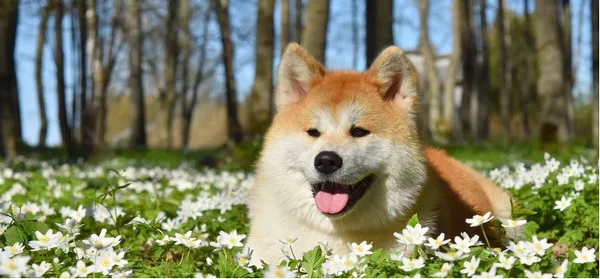Akita dogs are known for their loyalty, courage, and strong protective instincts. While these qualities make them excellent family pets, they can also pose challenges when it comes to introducing them to other dogs. Proper socialization and training are essential to ensure that your Akita gets along well with other dogs. In this comprehensive guide, we will explore the steps and strategies to help your Akita become a more sociable and friendly companion to other canines.
Understanding the Akita Breed
Before diving into the techniques for improving your Akita’s social behavior, it’s crucial to understand the breed’s unique characteristics. Akitas are a Japanese breed that was originally bred for guarding and hunting. These dogs tend to be reserved, strong-willed, and have a dominant nature. While these traits can make them exceptional protectors, they can also lead to conflicts when interacting with unfamiliar dogs.
Early Socialization
The key to helping your Akita get along with other dogs is early socialization. This process should start when your Akita is a puppy, as puppies are more receptive to new experiences and are less likely to develop aggressive behavior. Here are some tips for effective socialization:
Puppy Playdates: Arrange playdates with other friendly and well-behaved puppies. Ensure that these interactions are positive and supervised to prevent any negative experiences that may lead to fear or aggression.
Obedience Classes: Enroll your Akita in obedience classes or puppy training programs. This will not only help them learn essential commands but also expose them to different dogs and people in a controlled environment.
Expose to Various Environments: Take your Akita to different places, such as parks, pet-friendly stores, and events, where they can encounter other dogs. Gradually expose them to various sights, sounds, and smells.
Positive Reinforcement
Positive reinforcement is a fundamental training technique for encouraging good behavior in Akita dogs. When your Akita interacts positively with other dogs, reward them with treats, praise, and affection. This will help them associate pleasant experiences with being around other dogs, making them more inclined to repeat these behaviors.
Use treats that your Akita particularly enjoys and offer them immediately after a successful interaction with another dog. This will reinforce the idea that being friendly with other dogs leads to rewards.
Verbal praise, such as saying “good dog” or “well done,” can also be effective in reinforcing positive behavior during dog-to-dog interactions.
Controlled Meetings
When introducing your Akita to new dogs, it’s crucial to maintain control over the situation to prevent any potential conflicts. Here are some guidelines for controlled meetings:
Start with on-leash introductions: Keep both dogs on leashes during the initial meetings. This allows you to have better control and step in if necessary.
Watch body language: Pay close attention to your Akita’s body language and the other dog’s signals. Look for signs of stress, fear, or aggression, and be prepared to separate the dogs if needed.
Gradual exposure: Begin with short, positive interactions and gradually increase the duration as both dogs become more comfortable with each other.
Desensitization and Counterconditioning
If your Akita displays fear or aggression towards other dogs, you may need to employ desensitization and counterconditioning techniques. These methods involve gradually exposing your dog to the triggers (other dogs) in a controlled and positive manner to change their emotional response.
Start at a distance: Keep a safe distance from other dogs where your Akita remains calm. Reward them for calm behavior while gradually decreasing the distance over time.
Use treats and praise: Whenever your Akita remains calm around other dogs, reward them with treats and praise. This helps create positive associations.
Seek professional help: If your Akita’s aggressive behavior persists, consider consulting a professional dog trainer or behaviorist with experience in working with aggressive dogs.
Conclusion
Making your Akita get along well with other dogs requires patience, consistency, and a commitment to their socialization and training. Start early, use positive reinforcement, and carefully manage their interactions with other dogs. Remember that each Akita is unique, and it may take time for your dog to become more comfortable around unfamiliar canines. By following these guidelines and seeking professional help if needed, you can help your Akita develop into a well-adjusted and sociable companion for both humans and dogs alike.
Related Topics:

























